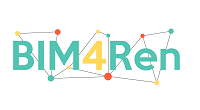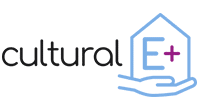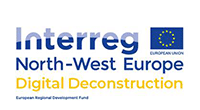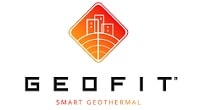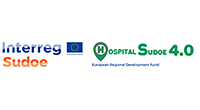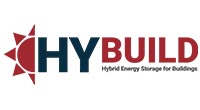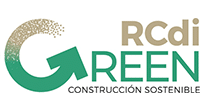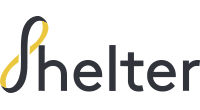Coordinated by NOBATEK/INEF4
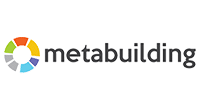
METABUILDING : METAclustering for cross-sectoral and cross-border innovation ecosystem BUILDING for the European Construction, Additive Manufacturing and Nature-Based Solutions industrial sectors’ SMEs.
METABUILDING will achieve a sustainable and expandable collaborative innovation ecosystem backed by an open innovation digital platform performing 6 main functions: 1) Cross-sectoral/border Digital Marketplace; 2) interactive Knowledge Repository; 3) Industrial commons database with technology assets from EU funded R&D, 4) Business Strategy resourcing, 5) Innovation Funding Scaling knowledge support and 6) Metaclustering Network Management.
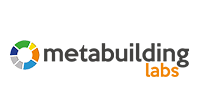
METABUILDING Labs : METAclustered, SME oriented European Open Innovation Test Bed for the BUILDING envelope materials industrial sector using a harmonised and upgraded technical framework and living LABS
Objective: to set up the first European open innovation network with a unified service offer for the development of building envelope technologies, particularly accessible to SMEs. The project includes the design and deployment of a network of test beds for innovative envelopes.
Other projects - NOBATEK/INEF4 as a partner
CULTURAL-E : Climate and cultural-based solutions for Plus Energy Buildings.
Aims to develop and define modular and replicable solutions and technologies for Plus Energy Buildings (PEBs), accounting for climate and cultural differences, while engaging all key players involved in the building life cycle; to create affordable indoor environments.
Aims to develop an innovative digital decision support system, integrating various digital tools that help to define the most sustainable and economical deconstruction and reuse strategy for buildings.
About Digital Deconstruction
We are partner in the Interreg NWE Digital Deconstruction project and proud to share our knowledge with EU project partners and specialists within the construction/building environment, bringing in the expertise to develop an innovative digital decision support system to reduce waste within the construction sector and the huge CO2 emissions of the industry.

Overview
Digital Deconstruction (DDC) is an innovated Interreg North West Europe (NWE) project in which smart digital services are developed to make circular construction possible.
The project aims to develop an innovative digital decision support system, integrating various digital tools (3D scanning, Building Information Modelling, a digital materials & buildings database, blockchain technology) that helps to define the most sustainable and economical deconstruction and reuse strategy for building.? By linking the digital system to innovative Building Information Model techniques, a cycle is created between design, construction and demolition. Scarce resources are reused in this way and will drastically reduce the huge CO2 emissions of the construction industry.
Researchers within the project are working on this open-source software system so engineers can reuse materials released from the dismantling of renovation and demolition projects in the construction industry and create a more sustainable future.
The project focuses on regions having set sustainable materials management, eco technologies, ICT and digitization in industry as one of their RIS3 priorities in The Netherlands, Belgium, Luxembourg and France, paving the way for roll-out to United Kingdom and Denmark. ?
Project development
The project develops the following main outputs:?
- An integrated DDC system at Technology Readiness Level (TRL) 7 (system prototype demonstration in operational environment), to be made accessible? to companies in IT, engineering, construction & real estate sector? as an open-source software package for further development and? integration to market-ready products and services. ?
2. A transnational network of Regional Innovation Hubs (RIH) that? support the optimization, validation and roll-out of DDC solutions. ?
3. 10 pilots, where the digital tools are tested in operational? environment; an interactive DDC Navigator supporting the use? and further adaptation of DDC tools. ?
Background
Construction and demolition waste (CDW) accounts for about 1/3 of all waste produced in the EU. About 50% of this amount is currently recycled in most EU countries, however the majority of CDW is destined for backfilling and other low value applications (downcycling). In North West European countries reuse and high-quality recycling (upcycling) of CDW remains below 3%. Poor digitalization of the construction sector is one of the key factors hindering better exploitation of circular opportunities. ??
More information about the project: https://www.nweurope.eu/projects/project-search/digital-deconstruction/
GEOFIT: Smart Geothermal Technologies
Development of a methodology of retrofitting buildings in the area of the geothermal resources through the use of several demo sites in order to reduce the energy consumption.
The project generates a real-time expert management system for the use and consumption of energy and water in hospital buildings, as well as a structured procedure for its renovation, so that their energy consumption is practically zero. In addition, the participation of administrations will be encouraged so that they assume these instruments to integrate them into its public energy transition policies.
HYBUILD : Innovative compact hybrid storage systems for low energy buildings
Development of costs-effective and environmental solutions in order to answer to the comfort conditions in two climates with various needs of cooling or heating.
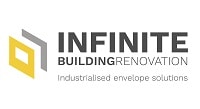
The EU’s building stock is relatively old. Half of all homes in most EU countries were built pre-1970 and before the first thermal regulations. This is why upgrading the energy efficiency of the building envelope – the physical barrier between indoor and unconditioned environment – is important. The EU-funded INFINITE project will pave the way for the decarbonisation of the EU building stock by facilitating the uptake of all-in-one industrialised envelope technologies by the market. INFINITE’s approach for deep renovation of buildings will result in both cost and time reduction, with attention to the life cycle perspective and the design for assembly and disassembly, including end-of-life residual value as well as construction and demolition waste.
RevalPET’Up
The project has developed a methodology for the recycling of opaque PET (reactive extrusion process), and showed that in order to develop high added value applications for this recycled material, there is a need to stabilize and improve its quality. This upgraded opaque PET will then be transformed by blending with other materials, to target applications requiring good mechanical performance, or in foams for building insulation.
RCdiGREEN : Sustainable construction
It seeks to establish a strategy, based on the fundamentals of the circular economy, to implement the enhancement and efficient management of construction and demolition waste, as well as the rehabilitation of consolidated buildings. In order to meet the economic, social, energy and environmental requirements.
Establishment of a cross-scale, multidimensional, data driven and community based operational knowledge framework for heritage-led and conservation-friendly resilience enhancement and sustainable reconstruction of historic areas to cope with climate change and natural hazards.



